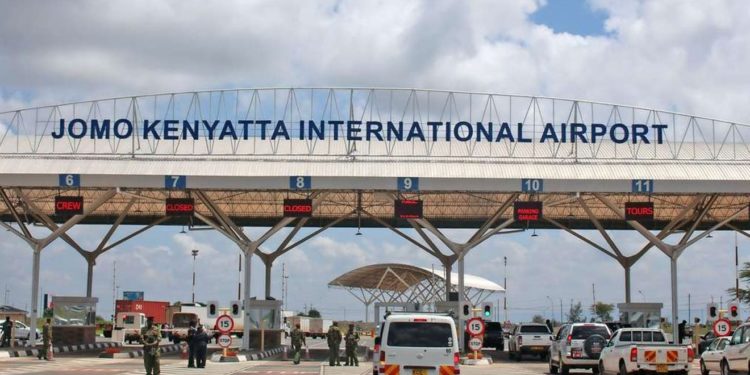Long queues and widespread chaos erupted at Jomo Kenyatta International Airport (JKIA) this evening as airport workers staged a go-slow in response to the Kenyan government’s consideration of a proposed lease of the airport to India’s Adani Airport Holdings.
The protest has caused significant disruptions at East Africa’s busiest airport, which is already grappling with infrastructure deficiencies.
This is how JKIA is working now… if you pay, you skip the line. pic.twitter.com/vMJ90j2Fhu
— Edwin H. Dande (@ehdande) September 10, 2024
Travelers on-site reported that workers demanded payment to secure a chance to travel to their desired destinations, resulting in a large group of stranded passengers camping out in the airport’s parking lot.
The Adani deal has faced substantial public backlash, with many criticizing it as an opaque and potentially corrupt agreement involving one of Kenya’s largest assets, JKIA. Concerns have been raised about the lack of public participation in the deal.
Reports indicate that Adani’s foreign employees have already begun operations at the airport.
Adani Enterprises Limited recently established a new subsidiary in Kenya, Airports Infrastructure PLC, which is set up to focus on the development, management, and modernization of airport facilities. This move has fueled speculation about Adani Group’s investment plans. The proposed investment includes a new passenger terminal, a second runway, and the refurbishment of existing facilities.
Henry Ogoye, Acting Managing Director of the Kenya Airports Authority (KAA), confirmed that Adani’s proposal outlines a comprehensive PPP model aimed at enhancing airport infrastructure while ensuring accountability and sustainable returns. Adani has projected an 18% Internal Rate of Return (IRR) from the aeronautical business.
Recently, the Kenyan government pledged full transparency and job security as it evaluates a potential public-private partnership (PPP) with Adani Group to modernize JKIA. Prime Cabinet Secretary Musalia Mudavadi addressed the growing concerns in a comprehensive status report, highlighting that the $2 billion proposal will undergo rigorous scrutiny and adhere strictly to legal protocols.
“The proposed expansion and modernization of JKIA will be conducted in strict adherence to our Constitution and, specifically, in accordance with the legal frameworks established under the PPP Act,” Mudavadi stated. He assured that JKIA, a strategic national asset, is not for sale and emphasized that labor issues will be handled in full conformity with Kenyan law.
The modernization project aims to address critical infrastructure needs at JKIA, which was constructed in 1978 and has exceeded its passenger capacity, handling over 8.6 million passengers last year against a 7.5 million capacity. Recent issues, such as leaking roofs and power outages, have underscored the urgent need for upgrades.
The proposed plan includes a new passenger terminal, refurbishment of existing terminals, a second runway, and enhanced cargo facilities. The government’s interest in a PPP model is driven by Kenya’s tight fiscal situation, with public debt at 69.7% of GDP and debt service payments consuming 63% of ordinary revenue.
Mudavadi emphasized that the proposal, submitted by Adani Airport Holdings in March 2024, is still under review. He noted that it will undergo the necessary due process, including value for money assessments, stakeholder engagement, National Treasury approval, and clearance by the Attorney General and Cabinet. Any agreement will also require Parliament’s approval if necessary.
The proposed agreement may follow a Build, Operate, and Transfer (BOT) model, which is commonly used worldwide. This model allows private companies to develop and manage airport infrastructure while retaining public sector ownership. The 30-year tenure of the agreement is intended to ensure long-term commitment and sustainable development.
















